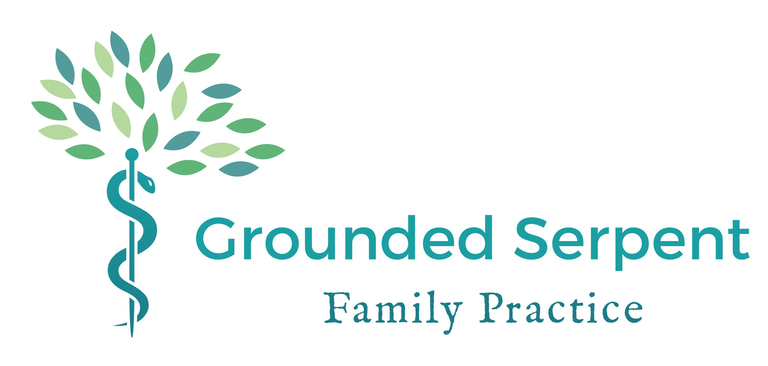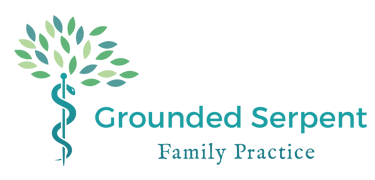My Story
It was around this time that I discovered my "gluten sensitivity." On the advice of a friend I trialed a gluten-free diet for a week. I had been having some very mild itching and she thought gluten might have something to do with it so I, skeptically, gave her theory a chance. On day seven I had a slice of pizza. And then I itched. All over.
Puzzled but resigned, I went gluten free.
And I was fine.
... Until I wasn't.
I started medical school in the summer of 2014 and almost immediately I began to get sick. The change was insidious enough that I didn't even really notice what was happening. From my perspective, I was apparently just a lot dumber than I had previously thought. I couldn't retain any of the information from my classes. I couldn't seem to pass my exams. I started getting panic attacks. But, hey, that's medical school, right? It's supposed to be hard.
But I was also procrastinating. A lot. Now, I'm what you would call a Type A personality. I don't put things off.
It stresses me out to put things off.
I can't relax until it (and everything else on my list) is done.
And yet, I was playing Minecraft like it was an addiction. I didn't study. I didn't clean the apartment. I didn't go out with friends. I went to class and I played Minecraft. I have a distinct memory of trying to crack open a text book during this period and it felt like I was trying to swim up a waterfall. The overwhelm flattened me. I had no resiliency at all. No tolerance for stress. I went back to my video game.
And then, there was the fatigue.
I have a new relationship with that word now. It means something different to me than it does to most people. To me, fatigue is crawling across your living room floor because your legs won't support your weight. Fatigue is choosing between a shower or brushing your teeth before collapsing back into bed. Fatigue is struggling to type because lifting a finger feels like lifting a bowling ball.
My symptoms - the combination of fatigue, brain fog, anxiety, depression, insomnia and utter inability to handle any level of physical or emotional stress - put my entire life on hold. The best and most concise way I have heard it described was by Jennifer Brea speaking of her own experience with chronic fatigue syndrome in her documentary "Unrest."
"It was like I had died but was forced to watch as the world moved on."
Fatigue, as I have come to define it in my own life, is the lack of energy to do basic activities of daily living, much less anything that makes life worth living. It seems unfair that this word should share its name with the "fatigue" that normal people know. The "fatigue" of a viral illness or a bad night's sleep or a long day at work. It was not the same...
But my doctor didn't know that, and I didn't have the words to make him understand. Nor did I have the energy to advocate for myself. I'm not even sure it would have made a difference if I had. My symptoms were vague and my labs were normal. I was just one of thousands of patients looking to him for answers and I didn't fall under one of the neat labels of "sick" that he had been trained to recognize. He couldn't help me. I didn't know what else to do or where else to turn, so I did the best I could on my own.
I had noticed my symptoms were exacerbated by gluten exposure so I became more strict and avoided sources of cross-contamination. It helped. My easy bruising and shortness of breath went away. I also failed enough classes that first semester that I was told to take the second semester off and try again fresh next year. The time off helped. But I didn't fully recover.
Over the next three years I sought care from multiple generalists and specialists. During one memorably painful encounter, the physician asked, "are you sure this isn't all in your head?"
"Well, no" I answered "But if it is, what do I do about it?"
The first two years of medical school are traditionally spent in the classroom learning basic science and pathophysiology. The last two years are spent in the hospital and clinics, learning how to be a doctor. By the time I reached the end of the second year of med school I was starting to deteriorate again. I knew that I didn't have the energy to walk around a hospital or assist in a surgery. I went back to my family physician, a new one this time, and she did the best thing she could do for me - she referred me to Dr. Kathleen Stienstra.
Dr. Stienstra is a family physician but she specializes in functional medicine, an alternative to the traditional medical model that seeks to "identify the root cause of disease." Treatments primarily involve nutritional and herbal supplements. She wrote me a letter recommending me for a year-long medical leave, saving my medical career for the first (but not last) time.
During my year off I saw Dr. Stienstra regularly. She didn't take insurance and I could not have afforded her fees so she saw me for free. For the first time in this journey, I had a physician in front of whom I never had to wonder, 'Does she believe me? Does she get it?'. She didn't feel the need to fit me into a diagnostic box so the fact that my symptoms didn't fall into one didn't call my story into question. In fact, she had treated many others just like me. I wasn't alone.
Using a combination of nutritional supplements and prescription medications, she was able to carry me through my final two years of medical school. I was functioning, but I wasn't cured. I still didn't tolerate exercise. I would still crash on the weekends and after work. I was plagued by brain fog during the day and my life was still severely limited by my fatigue.
A had a major flair in symptoms towards the end of my fourth year of medical school brought on by a long road trip with little sleep (trying to save money on hotel rooms traveling the residency interview trail). My medicines weren't working anymore, and I was confined to the couch or the bed except for when I pulled myself to the bathroom.
I became desperate.
I had tried everything my physicians and I could think of and I was still no better than a living corpse. I had lost the better part of my 20s to chronic fatigue. Was this going to last for the rest of my life?
I turned to the internet and discovered an program called ANS Rewire. The creator, Dan Neuffer, had suffered from chronic fatigue syndrome (as well as chronic pain from fibromyalgia) and he had found a way to get better. Through the program I discovered a theory that finally explained what was going on.
At the heart of the ANS Rewire program was the recognition that my symptoms were caused by a nervous system imbalance. Stress - both physical stress (like malnutrition and inflammation from undiagnosed celiac disease) and emotional stress (like medical school) - can contribute to the nervous system becoming overwhelmed and sending exaggerated danger signals to the conscious mind in the form of fatigue and/or pain. Theoretically, the nervous system has the potential to be rehabilitated through the reduction and then gentle reintroduction of stressors.
And guess what - it worked!
After 6 nightmarish years of unrelenting fatigue, I started on the path to healing. I got off all of my meds and almost all of my supplements. I finally graduated from medical school and then my healing really took off. As of this writing in May of 2021 (the end of my second year of residency which, trust me, was plenty stressful) I am 100% symptom free. I have my life back and I am full of gratitude that I have the privilege to practice medicine. There were so many times I feared chronic fatigue would take that from me. When I go to the grocery store, I park as far away from the entrance as I can because it's a miracle that I am able to walk all the way across the parking lot, do my shopping and then walk all the way back.
Without the support of Dr. Stienstra and my husband, and without the insight given to me by Dan Neuffer through his program, I would never have gotten this far. But there was also something else too. Something inside of me gave me the hope to keep going, to keep searching for a cure. It was the conviction that my suffering had a purpose. I don't know how many hundreds of times I cried out for relief over those 6 years, on the edge of utter despair. But each time I chose to surrender and endure in the faith that I would one day be able to bring healing to others.
I am so glad that I made that choice.
Through my journey I have gained insight not just into chronic fatigue syndrome but fibromyalgia, IBS, chronic pain, conversion disorder and so many more. I call this class of mysterious syndromes Stress Illness. I hope to one day be a leader in this field so if you are suffering from any sort of symptom that has defied treatment or if your physicians are telling you it's "all in your head" or caused by stress, I want to meet you. I'm still learning how to apply what I have learned to healing others so I can't promise a cure. But I do promise to hear you. To believe you. To fight for you. And to walk closely by your side as you travel your own path towards healing.
The illness I suffered during my medical training shaped who I am as a physician and person. I want to share that story with you here.
The year was 2013. I was in my senior year of college at Indiana State University in Terre Haute, Indiana and I could see the finish line. I was excited (though also quite nervous) to start medical school in just a few short months. It was a dream I had worked hard to turn into a reality for the past four years. I also had the recent good fortune of falling in love for the first time. Robbie was a broad-shouldered, sensitive man who swept me off my feet much more easily than I would like to admit.



